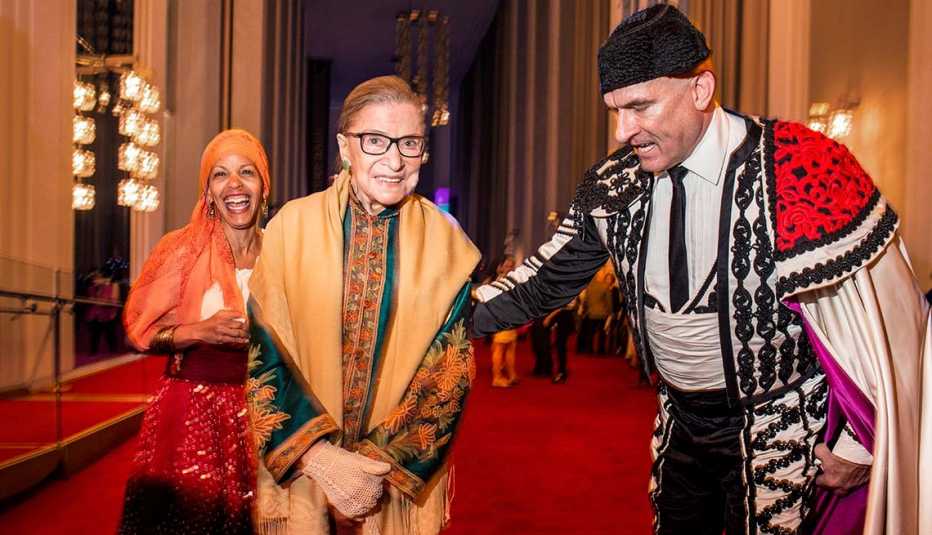Staying Fit


What do I love about opera?
Its glorious music, high drama and gorgeous voices. An operatic voice is like no other. I was a super once — an extra —in Die Fledermaus, and was seated within three feet of Plácido Domingo. I had never heard a voice of that beauty so close up. It felt as if an electric shock were running through me.
I think Mozart's operas The Marriage of Figaro and Don Giovanni are the two most perfect ever written. The music is magical. The sextet in The Marriage is the most hilarious piece in all of opera . And Don Giovanni has the most seductive duet, "Là ci darem la mano," sung when the Don attempts to seduce Zerlina. One day I'll say The Marriage is my favorite opera. The next day, the Don.


AARP Membership— $12 for your first year when you sign up for Automatic Renewal
Get instant access to members-only products and hundreds of discounts, a free second membership, and a subscription to AARP the Magazine.
In 2015, an opera opened about me and Justice Antonin Scalia. It's called Scalia/Ginsburg. The composer, Derrick Wang, has degrees in music from Harvard and Yale. Enrolled in law school, he was reading dueling opinions by me and Justice Scalia and decided he could compose an appealing comic opera from them. He uses lines from opinions, speeches and articles we've written. The opera is really touching because it shows two people who interpret the Constitution differently but genuinely like each other. The last duet we sing is "We Are Different, We Are One": different in the way we interpret written texts, one in our reverence for the institution we serve, the Supreme Court of the United States.
How do you get to know opera?
For me, it began when I was 11, in 1944. My aunt took me to a high school in Brooklyn for a condensed version of La Gioconda. I loved it. In high school I started attending the New York City Opera. To save money, I'd go to dress rehearsals. Or I'd buy tickets for seats in the last row of the top balcony.
When it came time to introduce my daughter to opera, I played a recording of Mozart's Così Fan Tutte, libretto in English, during dinner. After she had heard it maybe four or five times, we read the libretto together. Then my husband and I took her to a performance. By then, she knew most of the lyrics by heart. She was 8 years old. My son's first exposure was Aida.
One way to get to know and love opera is by attending the Metropolitan Opera simulcasts in a movie theater. I went to four or five last year.
Most of the time, even when I go to sleep, I'm thinking about legal problems. But when I go to the opera, I'm just lost in it. Loving it. And I don't think about any legal brief.
—As told to Frederick Allen
Ruth Bader Ginsburg, 82, is an associate justice of the Supreme Court.

































































More on politics-society
A Conversation With Neil deGrasse Tyson
The science superstar talks about his new TV talk show, Mars exploration and why he likes aging